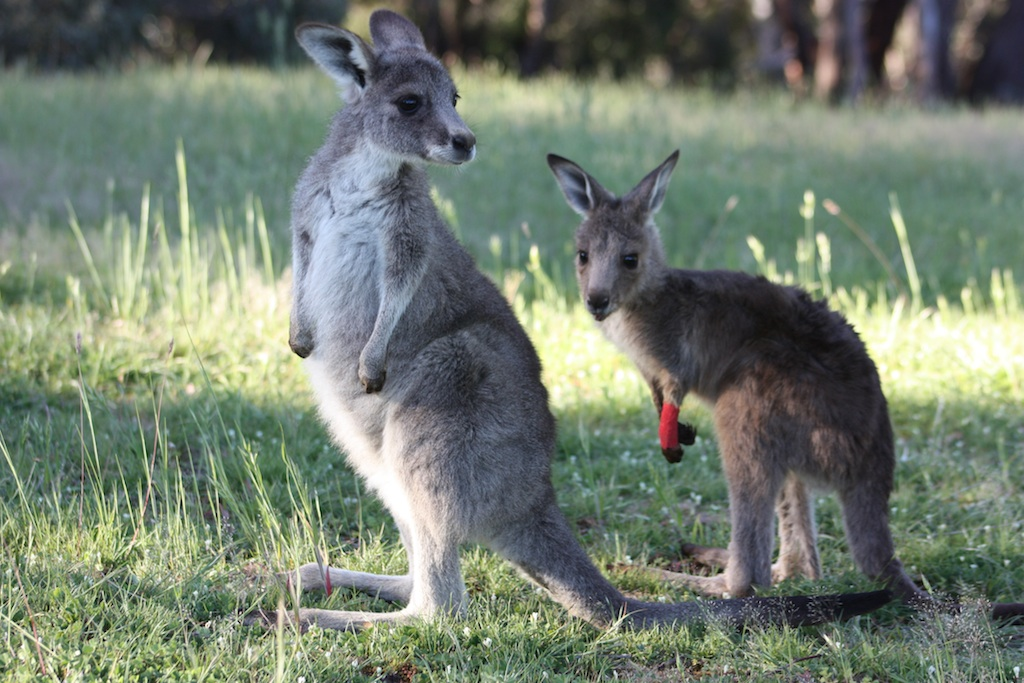Across Australia, dingoes are slowly being recognised for what they are: Australia's local apex predator with deep cultural significance and an important ecological role. Yet in many jurisdictions they continue to be subjected to widespread lethal control through baiting, trapping and shooting, due to policies that still classify them as pests or biosecurity threats. In 2023, Victoria ended...
By: Mark Simmonds and Nicola Beynon
If Japan had meant the timing of the statement about its departure from the International Whaling Commission (IWC) to help hide this important news, it failed abysmally. Instead the issue made headlines on December 26th all around the world. Japan did, however, successfully introduce some confusing spin into the media coverage, with many news outlets subsequently announcing that Japan will now ‘start’ commercial whaling, when many of us know that they have been doing this for decades, just calling it scientific research. Nonetheless, Japan’s announcement is very significant.
Just a few months ago, Japan failed in what seemed at first to be a rather brazen attempt to significantly undermine the international moratorium on commercial whaling at the last IWC meeting, which was held in Brazil. It brought forward a linked-package of proposals the progression of any part of which would have undermined the moratorium. However, after this package failed, Japan then made a closing speech in which it made it clear that it was seriously considering leaving the IWC altogether. Indeed, given the heat of their rhetoric, some of us present were poised for a dramatic walk-out by the huge Japanese delegation there and then. Whilst they remained in their seats, their message was very clear: in their view the IWC is “dysfunctional,” so this may well be goodbye! Many suspect that Japan deliberately brought a proposal to the IWC that it knew was very unlikely to succeed. So, they let it play out and let it be defeated, laying the ground for a withdrawal from the IWC based on what it presents back at home as a long-term injustice.
Some would argue that the whales may be no worse off with Japan outside the IWC. As a member of the IWC, it did not abide by the spirit of IWC’s decisions anyway. For example, Japan has long claimed that its continued whaling in the North Pacific and the Antarctic is legal under Article VIII of the convention, which allows countries to kill whales for research purposes. However, Article VIII was never intended to be exploited year after year for commercial purposes, and the International Court of Justice clearly ruled in 2014 that Japan’s whaling activities did not meet the requirements of Article VIII. The IWC also established a sanctuary in the Southern Ocean to create a no-whaling zone, but Japan took out a formal objection and so was not bound by the sanctuary decision.
Japan outside of the IWC loses the cover of both these legal loopholes. It will now openly kill whales for money without the various smoke and mirrors it has used for so many years. It is also not surprising that Japan has announced that it is also ending its whale killing in Antarctica, given that these waters are highly protected by other treaties.
For the individual whales, of course, the difference in having Japan inside or outside of the IWC may be imperceptible – a harpoon is a harpoon, and can inflict immeasurable cruelty, irrespective of whether you call it scientific or commercial, legal or illegal, or fire it in national waters or the high seas. Of course, the decision to end the hunts in Antarctica brings very welcome and overdue respite for those whales. At long last, the Southern Ocean Sanctuary will be as decreed by the IWC in 1994 and a true place of peace and sanctuary for whales free from commercial hunting. We have to hope that this situation is permanent.
Japan has not yet made clear which whale species it will hunt in its extensive national waters but the conservation impacts may be no less grave than on the high seas. It is important to note the international community agreed the global moratorium on commercial whaling for both the high seas and countries’ coastal waters because whale populations do not abide by our artificial boundary lines.
Among the minke whales in Japan’s waters there is a particularly endangered minke whale population which will inevitably be put at even greater risk. The sei whales Japan has already been targeting in their bogus scientific hunts in the North Pacific are also highly endangered. And, of course, whales in Japan’s waters also suffer from pollution in its many forms, entanglements in fishing gear and the ubiquitous consequences of climate change. Harpoons are the last thing they need to add to their perils.
For the IWC itself, Japan’s departure would certainly cause some problems to its already over-stretched budget, as Japan’s financial contribution is significant. And it is possible that some smaller pro-whaling nations will walk out behind Japan, taking their membership fees with them. However, once the financial storm is over, we expect that the IWC will emerge with its functionality intact and focus on the enormously challenging and important tasks it is increasing engaging with related to the conservation of the world’s whales, dolphins and porpoises.
Japan’s departure from the IWC means that it will now be considered a ‘pirate whaling nation’, operating outside of international law; the IWC being the only organisation recognized in international law to manage whaling and whale conservation. Japan’s departure has also struck a blow to the international cooperation that the UN Convention on the Law of the Sea requires for all marine wildlife, and that marine wildlife so desperately needs in these challenging times of over-fishing and environmental deterioration. The challenge now to the concerned nations of the world is how to address this new situation effectively and without compromise and it will need to be made clear to all that whaling outside of the IWC’s auspices is illegal and must end.
Mark Simmonds is Senior Marine Scientist at Humane Society International, and a world-renowned marine biologist who has spent the better part of his career looking at factors impacting marine mammals in the modern world. He is the author/co-author of more than 200 scientific papers, reports, articles and reviews, and a number of books. Along the way he has helped to raise the alarm about the impacts of chemical pollution and marine debris on seals and cetaceans, the growing significance of marine noise and the threat posed by climate change. He has been employed in the university sector (as a researcher, lecturer and Reader) and by several international non-governmental organisations. In the 2013 Queen’s Birthday Honours, he was awarded an OBE in recognition of his work in marine mammal conservation and environmental sciences.
Nicola Beynon is our Head of Campaigns in Australia and has twenty five years of experience campaigning in the Australian and international animal protection movements. She first joined HSI in 1998 and has spent a total of 15 years with the organisation. She has also spent time working in the NSW parliament as a policy advisor to an upper house MP and spent three years with World Animal Protection. Nicola has championed wildlife protection at many multi-lateral environment meetings including the UN Convention for Trade in Endangered Species CITES, Convention for the Conservation of Biological Diversity (CBD), Convention for Migratory Species and the International Whaling Commission (IWC); often as an adviser on Australian government delegations. Career highlights have been negotiating Australia’s national environment laws in 1999, securing protection for a ‘million acres’ of threatened wildlife habitat, taking the Japanese whalers to court and winning, working with the Australian Government to instigate international agreements for albatross and sharks, and protecting great white sharks from the global trade in their jaws and fins.


